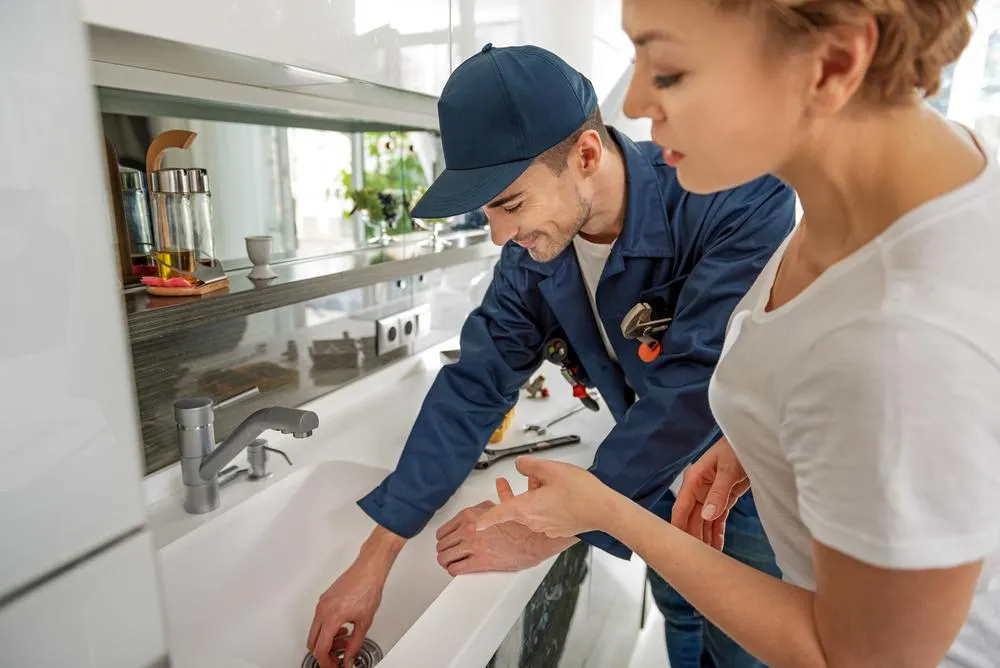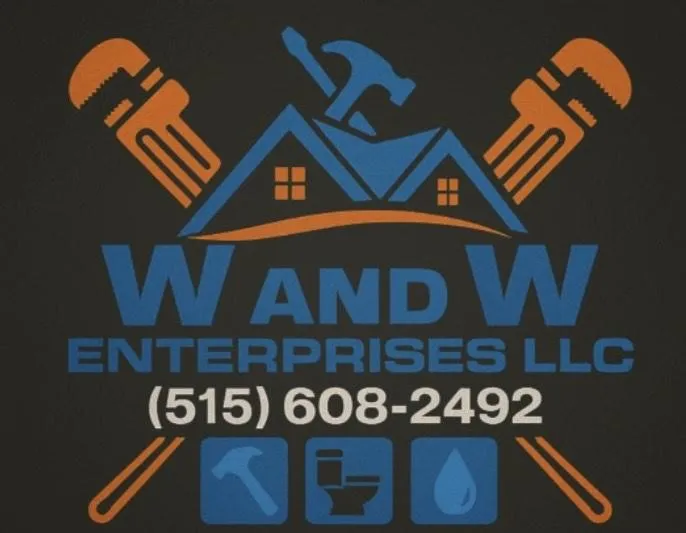(515) 608-2492
Blogs
W and W Enterprises

Common Plumbing Problems in Iowa Homes (and How to Prevent Them)
Plumbing problems are an unavoidable part of homeownership, especially in areas like Iowa where seasonal changes affect water systems. From frozen pipes in the winter to clogs during the summer, issues can appear when you least expect them. Knowing how to recognize and prevent these problems saves time, money, and unnecessary frustration. Staying proactive keeps your plumbing dependable throughout the year.
Your plumbing system works hard every day, moving water in and out of your home. Small problems can quickly grow into emergencies if left unchecked. Preventing issues begins with awareness and regular maintenance. With the right knowledge and professional support, you can keep your system in excellent condition.
Leaking Pipes and Fixtures
Leaking pipes are among the most common plumbing problems in Iowa homes. Small drips from faucets or joints may not seem urgent at first. Over time, however, even minor leaks waste water and increase your utility bills. Early detection makes the difference between a quick fix and costly repairs.
Temperature fluctuations in Iowa contribute to leaks as pipes expand and contract. Weak joints often fail when pressure builds or when seals begin to wear out. Moisture inside walls or ceilings is a sign of a hidden issue. Professional inspection ensures the true source of the leak is located and repaired.

Fixtures like faucets and toilets also cause leaks when washers, seals, or valves wear down. Replacing these small parts usually resolves the problem quickly. Ignoring them, however, leads to wasted water and structural damage. Regular checks of your fixtures help prevent these problems from getting worse.
Preventing leaks requires consistent monitoring and timely maintenance. Watch for dripping sounds, water stains, or unexplained increases in your water bill. Repairing or replacing aging parts keeps your plumbing efficient. Taking action early saves money and protects your property.
Clogged Drains and Sewer Issues
Clogged drains rank high on the list of common plumbing problems homeowners face. Hair, soap, grease, and food particles all contribute to buildup inside pipes. Over time, these materials block water flow and create slow drainage. If ignored, clogs can escalate into sewer backups.
Kitchen sinks are particularly vulnerable to grease and food waste. Pouring fats down the drain leads to hardened blockages that cling to pipe walls. Bathroom drains often struggle with hair and soap residue. These blockages not only slow water but also strain your plumbing system.
Sewer line issues cause significant headaches when left unchecked. Tree roots frequently invade underground pipes, especially in older neighborhoods. Cracks or collapsed lines also disrupt wastewater flow. Professional equipment is often necessary to diagnose and repair these serious problems.
Preventing clogs begins with mindful use of your drains. Avoid pouring grease down sinks and use drain covers in bathrooms. Schedule periodic cleanings to clear debris before it builds up. Preventative care reduces the risk of expensive sewer issues.
Low Water Pressure
Low water pressure frustrates homeowners and often signals larger plumbing problems. Showering, washing dishes, or running appliances becomes inconvenient without steady water flow. Several different issues cause this loss of pressure. Identifying the root cause is the first step to solving it.
Mineral buildup inside pipes is a common culprit. Over time, deposits restrict water movement and reduce efficiency. Corroded plumbing lines create similar blockages that limit performance. Replacing aging pipes or cleaning buildup restores pressure and improves your system.
Leaks in your system also reduce water pressure. Water escaping through cracks or loose fittings prevents proper flow to your fixtures. Unexplained drops in pressure often indicate hidden leaks somewhere in the system. Professional evaluation quickly identifies these areas and provides the right repair solution.
Preventing low pressure involves regular inspection and timely upgrades. Flushing your water heater, maintaining pipes, and replacing failing parts help maintain strong flow. Consistent care keeps your plumbing dependable. Addressing small issues early prevents major disruptions.
Frozen Pipes in Winter
Iowa winters bring freezing temperatures that create dangerous plumbing problems. Pipes located in basements, crawl spaces, or exterior walls face the highest risk. When water freezes inside a pipe, it expands and often causes ruptures. The damage from burst pipes can be devastating.
Frozen pipes typically reveal themselves through no water flow at faucets. Frost on pipes or unusual odors from drains also indicate freezing. Quick action is critical once you notice these warning signs. Thawing pipes incorrectly can cause further damage, so caution is important.

Preventing frozen pipes starts with insulation. Wrapping vulnerable lines in foam or heating tape reduces the chance of freezing. Keeping cabinets open during cold spells allows warm air to reach pipes. Simple steps like these save you from costly emergencies.
Long-term solutions include rerouting vulnerable pipes or upgrading to durable materials. Proper installation keeps lines protected from exposure to extreme cold. Professional plumbers can identify at-risk areas and recommend effective strategies. Preventative planning ensures your plumbing survives harsh winters.
Outdated Plumbing Systems
Many Iowa homes still rely on aging plumbing systems. Old materials like galvanized steel corrode over time and lose effectiveness. Outdated systems create numerous plumbing problems, from leaks to poor water quality. Upgrading ensures safe and reliable performance for years to come.
Corroded pipes often develop rust, which affects both water taste and appearance. Weak spots in old pipes frequently lead to leaks. Low water pressure is another common sign of deterioration. Replacing old systems eliminates these problems and improves efficiency.
Modern plumbing materials provide superior durability and safety. PEX and copper piping resist corrosion and last significantly longer than outdated options. Upgrades also reduce the likelihood of sudden failures. Investing in modern systems protects your home.
Preventing problems with outdated plumbing requires professional evaluation. A licensed plumber can assess your system’s age and condition. They provide recommendations tailored to your needs and budget. Making upgrades today prevents bigger problems tomorrow.
Solving Plumbing Problems with Trusted Help
Plumbing problems affect every homeowner at some point, but most can be prevented with proper care and attention. Leaks, clogs, low pressure, frozen pipes, and outdated systems all threaten your comfort and safety. Staying aware and acting early ensures your plumbing remains reliable. Preventative maintenance always pays off.
When you need professional plumbing services in Central Iowa, trust W and W Enterprises to handle the job. From water line replacements to bathroom installations, we deliver reliable results backed by licensed experience. Call W and W Enterprises today for expert service. Let us solve your plumbing problems and protect your home.

© 2025 W and W Enterprises. All rights reserved.
Privacy Policy
Terms of Service